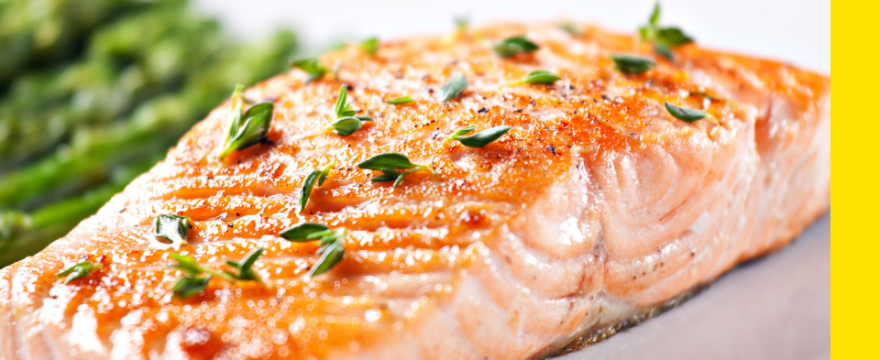Have you ever eaten a meal that left you feeling foggy, distracted, or even sad? Or one that made you feel clear, focused, and uplifted? That’s not your imagination, it’s science.
Your brain is one of the most metabolically active organs in your body, using about 20% of your daily energy. What you feed it matters a lot. And while many women in helping professions struggle with low mood, burnout, or addiction, one overlooked tool in your healing toolbox is right on your plate.
Let’s explore the best and worst foods for your brain, so you can nourish your mind and mood naturally.
Supercharge Your Brain: The 8 Best Foods for Mental Clarity
1. Leafy Greens: The Brain’s Fountain of Youth
Just 1-2 servings a day of spinach, kale, or Swiss chard can help your brain perform as if it’s 11 years younger. Rich in folate, vitamin K, and antioxidants, leafy greens protect neurons and support neurotransmitter production.
Pro Tip: Blend into smoothies or pair with a small amount of olive oil to enhance absorption.
2. Berries: Nature’s Mood Boosters
Blueberries, raspberries, and strawberries are rich in flavonoids like anthocyanins, which improve memory, reduce inflammation, and even lift symptoms of depression.
Fun Fact: Frozen berries are just as potent as fresh and often more affordable.
3. Cruciferous Veggies: Detox for Your Brain
Broccoli, cauliflower, and Brussels sprouts release sulforaphane when chopped, a powerful neuroprotective compound. They lower inflammation and protect brain cells from damage.
Kitchen Hack: Chop and let sit 40 mins before cooking to maximize sulforaphane.
4. Turmeric: Golden Spice for a Golden Mind
Curcumin, turmeric’s active compound, crosses the blood-brain barrier, reducing neuroinflammation and boosting BDNF, a key brain growth hormone.
Pro Tip: Always pair with black pepper and healthy fat for best absorption.
5. Coffee & Green Tea: Focus + Calm
In moderation, coffee sharpens alertness while green tea offers calm clarity through L-theanine. Both beverages contain antioxidants that protect neurons.
Warning: Too much caffeine can backfire. Aim for 1–3 cups max.
6. Legumes: Brain Fuel on a Budget
Beans, lentils, and chickpeas are loaded with folate, magnesium, and plant-based choline, nutrients that boost neurotransmitter production and blood sugar stability.
Tip: Start with red lentils or split peas if legumes upset your digestion.
7. Omega-3s: Essential Brain Builders
Found in flaxseeds, chia, walnuts, and algae oil, omega-3s (DHA/EPA) are critical for memory, mood, and reducing the risk of cognitive decline.
Warning: Fish may carry more risks than benefits. In addition to mercury, fish can be contaminated with persistent pollutants like DDT, dioxins, and PCBs—industrial toxins that have been linked to accelerated cognitive decline, brain shrinkage, and Alzheimer’s disease. These toxins bioaccumulate in the food chain, making large fish like tuna, swordfish, and mackerel particularly hazardous. Animal-based foods such as fish, meat, eggs, and dairy have been found to contain five to ten times more of these harmful compounds than plant foods.
Safer Options: Choose plant-based omega-3 sources or purified algae-based supplements, which offer brain benefits without the toxic burden.
8. Dark Chocolate: Sweet Support for Mental Health
Rich in flavonoids and magnesium, dark chocolate enhances blood flow to the brain and can even improve mood.
Look for: 70% or higher cacao and no added sugar.
Brain Fog Foods: The 5 Worst Offenders
1. Ultra-Processed Foods: Brain Drain in a Bag
Ready meals, chips, and boxed snacks spike inflammation and lack nutrients your brain needs to thrive. One study found they account for up to 28% of preventable cognitive decline.
Swap for: Fresh, whole foods with 5 ingredients or fewer.
2. Added Sugars: A Sweet Saboteur
Excess sugar suppresses BDNF, impairs memory, and increases the risk of depression. Today, the average woman eats over 40 tsp/day—far more than our brains are built to handle.
Pro Tip: Satisfy sweet cravings with fruit or cinnamon.
3. Artificial Sweeteners: The Sneaky Saboteurs
Linked to anxiety, memory issues, and even stroke risk, synthetic sweeteners like aspartame and sucralose trick the brain and disrupt neurotransmitter function.
Better Options: Stevia, monk fruit, or simply reduce these sweeteners over time. Dates or fruits are the best options.
4. Alcohol: Not Worth the Buzz
Even moderate drinking (1–2 glasses daily) reduces gray matter and accelerates brain aging. Alcohol also disrupts sleep and drains B vitamins.
Challenge: Try 30 days alcohol-free to see what improves.
5. High-Mercury Fish: Heavy Metal, Heavy Costs
Tuna, swordfish, and king mackerel can carry mercury, a neurotoxin that damages memory, mood, and attention. But mercury isn’t the only concern—many fish also contain DDT, dioxins, and PCBs, which are linked to Alzheimer’s disease, accelerated brain aging, and increased inflammation. Even fish often labeled “low-risk,” like sardines or canned seafood, pose cancer risks due to arsenic, cadmium, and lead contamination when consumed regularly.
Safer Sources: For long-term brain health, lean toward plant-based omega-3s from seeds (hemp, chia, flax), walnuts, and algae supplements, minimizing or avoiding animal-based sources to reduce cumulative toxin exposure.
Final Thoughts: Feed Your Brain, Fuel Your Life
You don’t have to overhaul your entire diet overnight. Start small: add a handful of kale to your smoothie, swap sugary snacks for berries, or try lentil soup instead of instant noodles.
Your brain is listening to what you eat. Every bite is either helping or hindering your mood, clarity, and resilience.
Let food be part of your healing journey, because nourishing your brain is one of the most powerful, everyday ways to feel like yourself again.

Leave a Reply